★★★
“A girl walks home at night…”
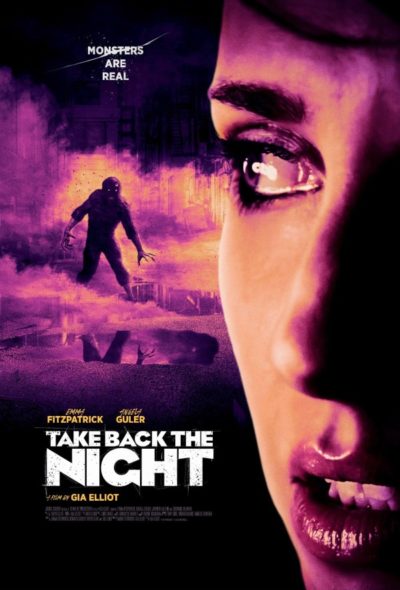 This is not exactly subtle in terms of its messaging, or the underling metaphor. But to be honest, I kinda respect that. I’d probably rather know what I’m in for, from the get-go, rather than experiencing a film which thinks it’s going to be “clever”, and pull a bait and switch. Here, even the title makes it obvious enough. The ‘monster’ here is sexual violence, and should you somehow make it through the film oblivious to that, you’ll get a set of crisis helplines before the end-credits role. However, it manages to do its job without becoming misanthropic, largely by having very few male speaking characters, and is adequately entertaining on its own merits, not letting the movie drown in the message.
This is not exactly subtle in terms of its messaging, or the underling metaphor. But to be honest, I kinda respect that. I’d probably rather know what I’m in for, from the get-go, rather than experiencing a film which thinks it’s going to be “clever”, and pull a bait and switch. Here, even the title makes it obvious enough. The ‘monster’ here is sexual violence, and should you somehow make it through the film oblivious to that, you’ll get a set of crisis helplines before the end-credits role. However, it manages to do its job without becoming misanthropic, largely by having very few male speaking characters, and is adequately entertaining on its own merits, not letting the movie drown in the message.
Up-and-coming artist Jane Doe (Fitzpatrick) is savagely attacked one night outside the warehouse where she’s having her show. Though she reports it to the police, the investigating detective (Lafleur) comes increasingly to the conclusion that Jane is making up the story. This is partly because of her history of petty crime, substance abuse and hereditary mental illness; partly because what Jane describes, rather than a conventional attacker, is a monstrous, smoky and fly-blown apparition. Nor is Jane’s sister (Gulner) exactly supportive, even after the creature returns, looking to finish what it started. Jane discovers an underground network of survivors, and lore stating that only a bronze dagger, forged by a hunter, can hurt it. Fortunately, as an artist, she has a very particular set of skills…
The makers have made some interesting, and rather brave choices. Jane is the only character with a name, and she’s not exactly relatable in a conventional sense. I found it easy to dislike her influencer ways – she seems happiest when telling her sister of an upcoming TV interview about her ordeal – or the random sex she has minutes before the attack. One element of the message is very much that none of this makes Jane ‘deserve’ what happens to her, though the film ignores the counter-argument that when our actions have negative consequences, we can’t deny entirely our own responsibility. You go swimming with sharks, you might end up losing a limb.
There are points which do require the audience to stretch their disbelief more than the grounded tone of this should need. I’d also have liked to hear more about the network. Indeed, the film feels like it finishes just when it should be starting. An entity more interested in entertainment might have compressed what we get here into the front thirty minutes, and developed the notion of a crypto-cult of female vigilante warriors battling these creatures, with their bronze daggers from the shadows. That would, however, likely have diluted the message here and, make no mistake, that is what matters most to the film-makers. Regular readers will be well aware of my problems with cinematic soapboxes. While this does not avoid the resulting pitfalls entirely, nor is it a complete failure like some I’ve endured, and is certainly watchable.
Dir: Gia Elliot
Star: Emma Fitzpatrick, Angela Gulner, Jennifer Lafleur, Sibongile Mlambo





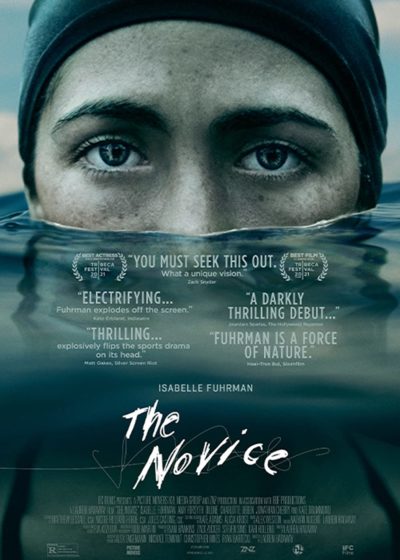 Rowing is not a pastime to which I’ve ever given much thought. It’s the backdrop for this, and is based (to some extent) on writer-director Hadaway’s experiences of the sport at college. Her cinematic background is in sound editing, where she worked on films such as The Hateful Eight and – probably of most relevance here – Whiplash. The latter was a study of obsession in the pursuit of talent, and is echoed in the story here.
Rowing is not a pastime to which I’ve ever given much thought. It’s the backdrop for this, and is based (to some extent) on writer-director Hadaway’s experiences of the sport at college. Her cinematic background is in sound editing, where she worked on films such as The Hateful Eight and – probably of most relevance here – Whiplash. The latter was a study of obsession in the pursuit of talent, and is echoed in the story here. This is another one in the apparently endless series of low-budget urban movies, which focus on crime in the black community. Though this does actually have a couple of wrinkles which make it stand out, if not quite enough to make it a success for a wider audience outside its community. Columbus, Ohio is the setting, where Princess (Godsey) is struggling to make ends meet. She’s relying on handouts from her dodgy brother, Dae Dae, to make rent, and also wants to get her best friend away from her pimp. Opportunity comes knocking, in the shape of an Uber driver, Omar (Campbell), who brings her on board in his business, which he tells her has almost unlimited upside and growth potential.
This is another one in the apparently endless series of low-budget urban movies, which focus on crime in the black community. Though this does actually have a couple of wrinkles which make it stand out, if not quite enough to make it a success for a wider audience outside its community. Columbus, Ohio is the setting, where Princess (Godsey) is struggling to make ends meet. She’s relying on handouts from her dodgy brother, Dae Dae, to make rent, and also wants to get her best friend away from her pimp. Opportunity comes knocking, in the shape of an Uber driver, Omar (Campbell), who brings her on board in his business, which he tells her has almost unlimited upside and growth potential.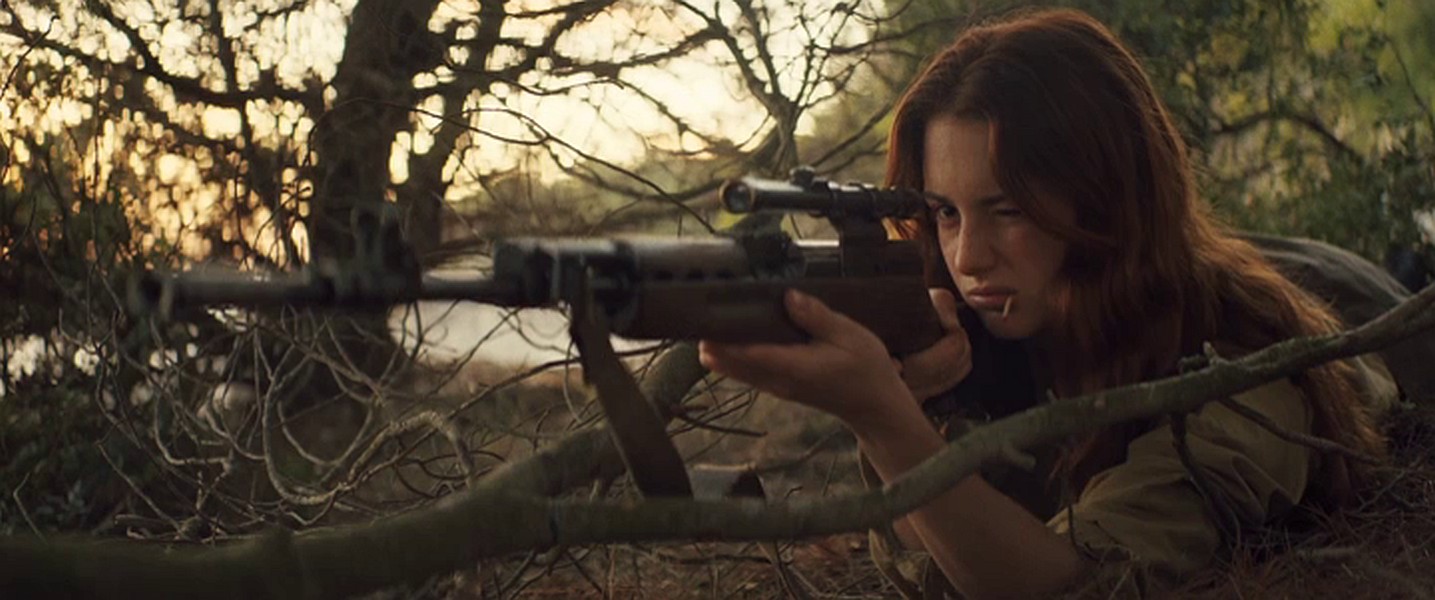 ★½
★½ I am contractually obliged to appreciate at least somewhat, any film made here in Arizona. This certainly fits the bill, having been shot at places like the Pioneer Living History Museum, Sitgreaves National Forest and Winters Film Group Studio. However, it is a fairly basic tale of two-pronged revenge, with significant pacing issues. The proceedings only come to life in the last 20 minutes – and barely that. Initially, matters are more than a tad confusing, as we jump about in time and space without apparent notification. But the basic principal is eventually established.
I am contractually obliged to appreciate at least somewhat, any film made here in Arizona. This certainly fits the bill, having been shot at places like the Pioneer Living History Museum, Sitgreaves National Forest and Winters Film Group Studio. However, it is a fairly basic tale of two-pronged revenge, with significant pacing issues. The proceedings only come to life in the last 20 minutes – and barely that. Initially, matters are more than a tad confusing, as we jump about in time and space without apparent notification. But the basic principal is eventually established.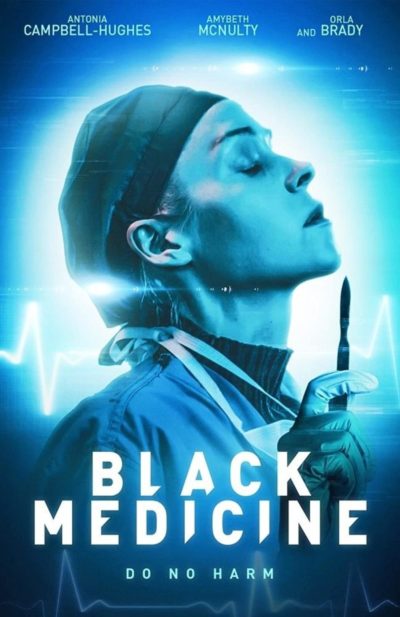 I guess, at its heart, this is the story of two mothers. There’s Jo (Campbell-Hughes), an anaesthetist who has been struck off the medical register, for reasons that are left murky. She’s now practicing her healing arts on the underground market, from patching up dubious stabbing victims, to carrying out unlicensed abortions. Jo lost her daughter to meningitis, and has split from her husband. Then there’s Bernadette (Brady), a wealthy but no less murky character. Her daughter is dying, and in desperate need of a transplant. To that end, Bernadette has kidnapped a young woman, Aine (McNulty), with the intention of using her as an unwilling organ donor, and needs Jo’s help for the operation. But when Aine – who would be about the age of Jo’s daughter had she lived – escapes and hides in the back of the physician’s car, Jo is left with a series of difficult decisions.
I guess, at its heart, this is the story of two mothers. There’s Jo (Campbell-Hughes), an anaesthetist who has been struck off the medical register, for reasons that are left murky. She’s now practicing her healing arts on the underground market, from patching up dubious stabbing victims, to carrying out unlicensed abortions. Jo lost her daughter to meningitis, and has split from her husband. Then there’s Bernadette (Brady), a wealthy but no less murky character. Her daughter is dying, and in desperate need of a transplant. To that end, Bernadette has kidnapped a young woman, Aine (McNulty), with the intention of using her as an unwilling organ donor, and needs Jo’s help for the operation. But when Aine – who would be about the age of Jo’s daughter had she lived – escapes and hides in the back of the physician’s car, Jo is left with a series of difficult decisions. I’ve previously talked about – OK, “ranted” may not be inappropriate – the perils of message movies. But I did wonder whether it was the specific content to which I objected. Would I dislike a film so much, if I was on board with its strident message? On the evidence here, I can confidently state: hell, yes. For this is painfully earnest and hard to watch, much though I agree with the environmental topic, that humanity’s use of plastics are threatening the oceans. An alternative needs to be found. By which I mean, I strongly suggest you find an alternative to watching this movie. The poster has clearly strayed in from a far more entertaining offering, and bears little resemblance to what this provides.
I’ve previously talked about – OK, “ranted” may not be inappropriate – the perils of message movies. But I did wonder whether it was the specific content to which I objected. Would I dislike a film so much, if I was on board with its strident message? On the evidence here, I can confidently state: hell, yes. For this is painfully earnest and hard to watch, much though I agree with the environmental topic, that humanity’s use of plastics are threatening the oceans. An alternative needs to be found. By which I mean, I strongly suggest you find an alternative to watching this movie. The poster has clearly strayed in from a far more entertaining offering, and bears little resemblance to what this provides. 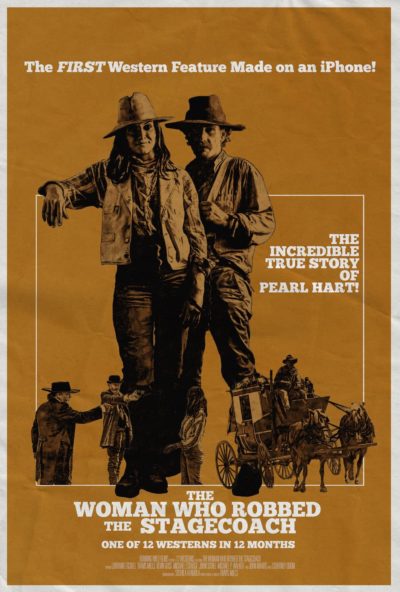 There are a couple of points to note going in. This was one of “12 Westerns in 12 months”, a project run by the director during 2020. It also proudly pronounces itself as the first ever Western feature to be shot entirely on an iPhone. Both of these do lead to limitations. The sheer speed involved obvious has an impact, and I can’t help wondering if a more measured approach would have been better for the end product. As for the iPhone… Well, on the plus side it looked perfectly watchable on my 49″ television, especially the outdoor scenes. However, the indoor sequences seemed almost
There are a couple of points to note going in. This was one of “12 Westerns in 12 months”, a project run by the director during 2020. It also proudly pronounces itself as the first ever Western feature to be shot entirely on an iPhone. Both of these do lead to limitations. The sheer speed involved obvious has an impact, and I can’t help wondering if a more measured approach would have been better for the end product. As for the iPhone… Well, on the plus side it looked perfectly watchable on my 49″ television, especially the outdoor scenes. However, the indoor sequences seemed almost 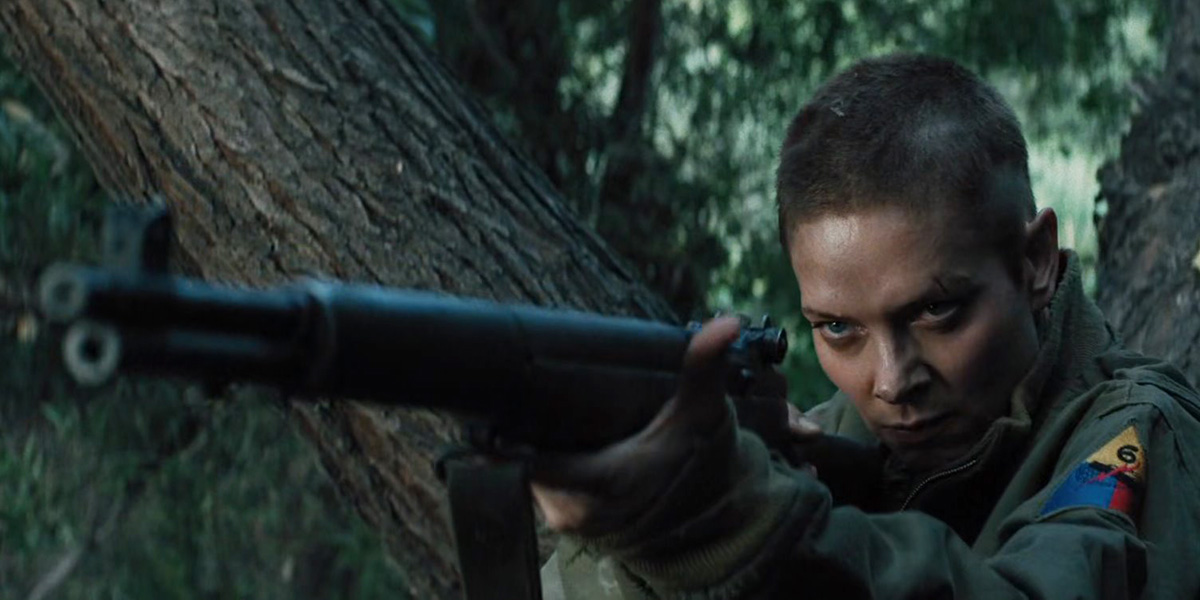 ★★★½
★★★½ I’m tempted to leave my review at that. But there’s a famous quote by critic Roger Ebert, going off on Bruce Willis flop, North: “I hated this movie. Hated hated hated hated hated this movie. Hated it. Hated every simpering stupid vacant audience-insulting moment of it. Hated the sensibility that thought anyone would like it. Hated the implied insult to the audience by its belief that anyone would be entertained by it.” I was always impressed, and hoped one day to find a film capable of producing a similar reaction. This is… close. It is, let’s be clear, utterly terrible, with almost no redeeming qualities. Yet it’s either not bad enough, or more likely, too bad to generate such a reaction. That would be giving it more power and credit than this deserves.
I’m tempted to leave my review at that. But there’s a famous quote by critic Roger Ebert, going off on Bruce Willis flop, North: “I hated this movie. Hated hated hated hated hated this movie. Hated it. Hated every simpering stupid vacant audience-insulting moment of it. Hated the sensibility that thought anyone would like it. Hated the implied insult to the audience by its belief that anyone would be entertained by it.” I was always impressed, and hoped one day to find a film capable of producing a similar reaction. This is… close. It is, let’s be clear, utterly terrible, with almost no redeeming qualities. Yet it’s either not bad enough, or more likely, too bad to generate such a reaction. That would be giving it more power and credit than this deserves.